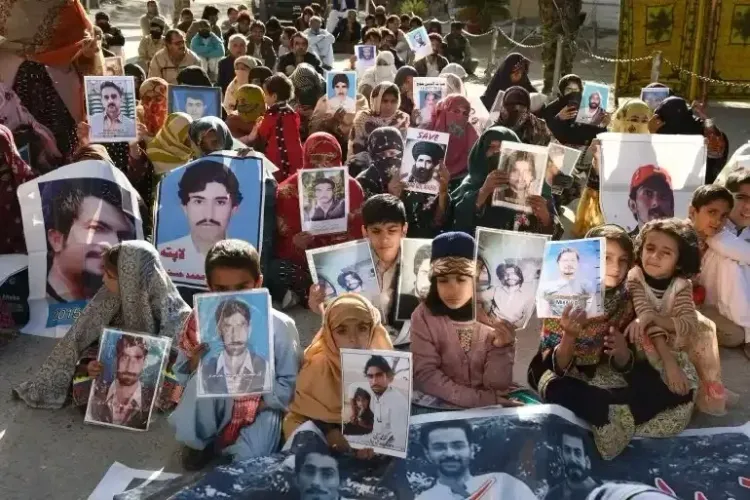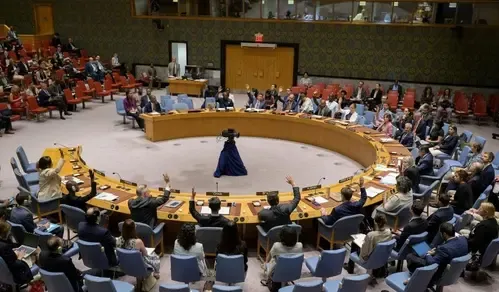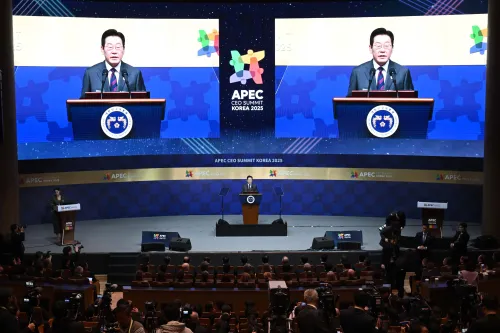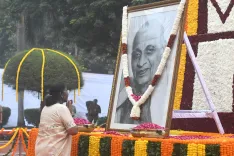Why Are Balochs Declaring 'Balochistan is Not Pakistan'?

Synopsis
Key Takeaways
- Baloch activists worldwide are demanding an end to oppressive policies in Balochistan.
- Enforced disappearances continue to rise, creating a climate of fear.
- International pressure is deemed essential for human rights advocacy.
- The Baloch National Movement condemns the actions of Pakistani forces.
- Awareness of the situation is crucial for global accountability.
Quetta, May 14 (NationPress) As numerous individuals continue to be forcibly disappeared across various districts of Balochistan province, several Baloch activists around the globe have reiterated their demand for immediate international pressure on Pakistan to cease its oppressive policies in the region.
"Baloch people throughout Pakistan-occupied Balochistan (PoB) are rising up, and their message is clear: Balochistan is not Pakistan and the world can no longer remain a silent observer," stated Mir Yar Baloch, a prominent Baloch human rights activist, in a post on X this Wednesday afternoon.
Paank - the Human Rights Department of the Baloch National Movement - has condemned the ongoing policy of enforced disappearances executed by Pakistani security forces and intelligence agencies in Balochistan.
Detailing incidents from April to May, it reported that five more individuals were forcibly vanished across various districts in Balochistan, illustrating a persistent atmosphere of fear, impunity, and state suppression in the area.
"On April 14, 2025, Shah Jan, son of Qadir Dad, a resident of Absar Bunday Kalat in Turbat, was abducted by military intelligence operatives in the Yaqoob Mohla Absar locality. On April 24, Ali Ahmed, son of Muhammad Rahim from Jebbri Mashkai, Awaran district, was taken from his home by Pakistani forces," the statement revealed.
"On May 7, 2025, Ahmed Khan, son of Haji Muhammad Umar, was forcibly taken from his residence in Killi Chotu Mastung. On May 11, Zabid Ali, son of Muhammad Rafiq, a labourer from Killi Sardar Ali Ahmed Khan, Chaghi, was abducted by Pakistani security forces. On May 12, Tahir Baloch, son of Allah Bakhsh from Dasht Hor Shollig, Kech district, was detained with his vehicle by forces from Gwadar district," it further stated.
The human rights organization emphasized that these incidents represent a broader, systemic policy of enforced disappearances that remains rampant in Balochistan.
"Victims are frequently taken without any legal procedures, warrants, or due process, leaving families in distress with no information regarding their loved ones’ safety or whereabouts," it noted.
Paank urged international human rights organizations, including the United Nations Working Group on Enforced or Involuntary Disappearances, and the global community to exert pressure on Pakistan to release all forcibly disappeared individuals and terminate its repressive measures in Balochistan.
"The practice of enforced disappearances must be recognized as a crime against humanity, and those responsible should be held accountable under international law," the organization asserted.
Last month, Paank released the 'Balochistan Human Rights Report– March 2025' that highlighted the alarming human rights abuses occurring in the province, particularly focusing on the ongoing issues of enforced disappearances and extrajudicial killings.
The report indicated that in March 2025, numerous cases of enforced disappearances and illegal detentions were logged across 15 districts in Balochistan, with some cases extending even into parts of Karachi, Islamabad, Jacobabad, and Dera Ghazi Khan. The Quetta and Qalat districts recorded the highest incidents, with 37 individuals reported as forcibly disappeared. The total number of enforced disappearances in March was reported to be 181.









